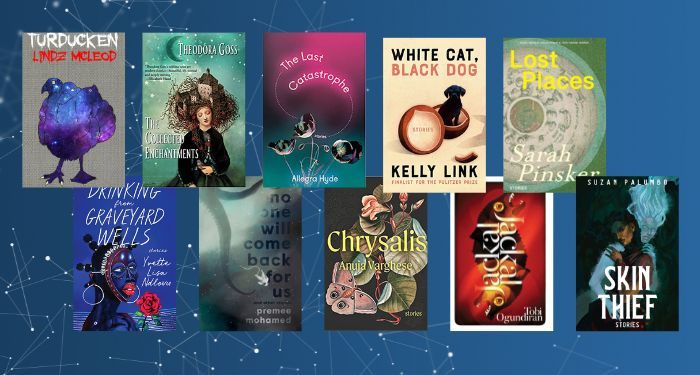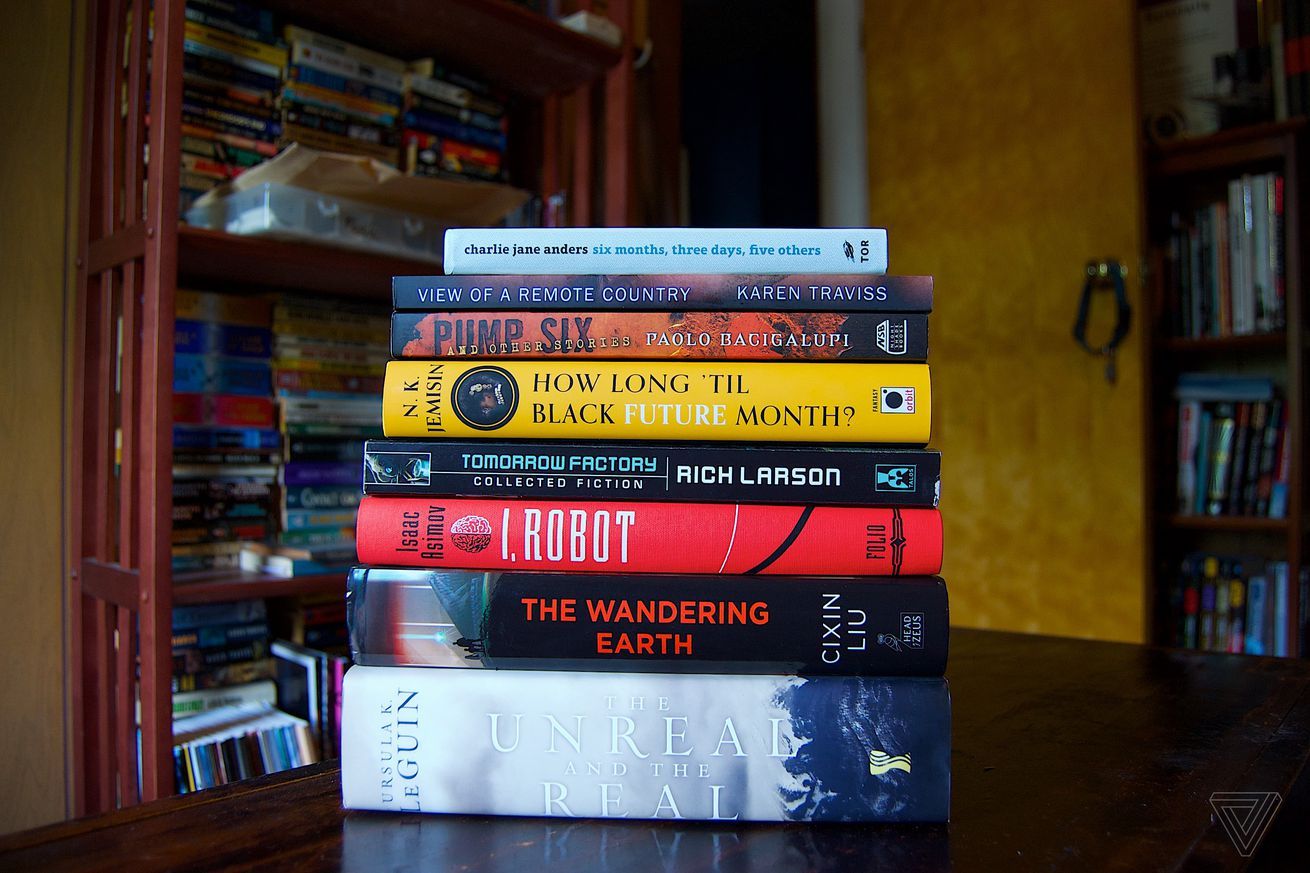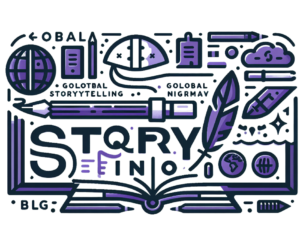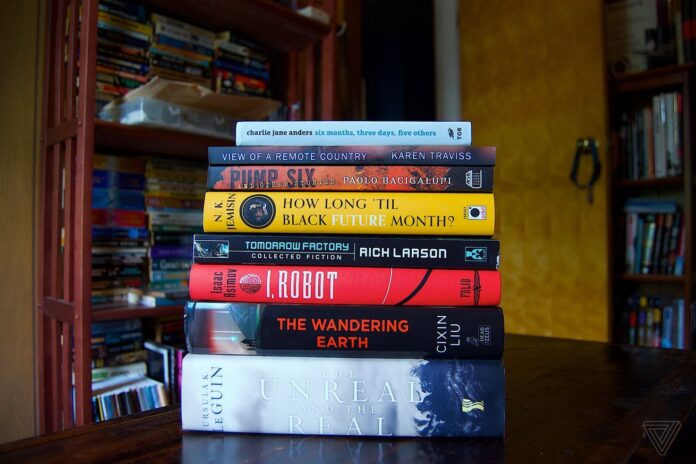Science fiction continues to captivate readers with its ability to imagine the future, explore the unknown, and reflect on the human condition through speculative lenses. In 2024, a new wave of authors has emerged, bringing fresh perspectives and innovative narratives to the genre. Here, we highlight some of the best short story collections from emerging sci-fi voices that have made a significant impact this year.
1. “Futures Unwritten” by Lina Rodriguez
Lina Rodriguez’s debut collection, “Futures Unwritten,” has taken the sci-fi world by storm. Rodriguez masterfully blends elements of cyberpunk, dystopia, and space opera to create a series of thought-provoking stories. Each tale explores the intersection of technology and humanity, questioning what it means to be human in an increasingly digital world. Notable stories include “The Last Algorithm,” where an AI contemplates its own existence, and “Echoes of Tomorrow,” which examines the societal impact of memory manipulation technology.
2. “Celestial Horizons” by Arjun Patel
“Celestial Horizons” is Arjun Patel’s first foray into the realm of science fiction, and it’s a remarkable achievement. Patel’s stories are richly imaginative, set in distant galaxies and on alien worlds, yet they maintain a deep sense of humanity. His writing is characterized by vivid descriptions and intricate world-building. In “Starlight Requiem,” Patel explores the consequences of interstellar colonization, while “Galactic Nomads” follows a group of space travelers searching for a new home. Patel’s ability to weave complex, emotional narratives makes this collection a must-read.
3. “Quantum Dreams” by Evelyn Chen
Evelyn Chen’s “Quantum Dreams” offers a compelling blend of hard science fiction and philosophical musings. Chen’s background in theoretical physics shines through in her meticulously crafted stories that delve into quantum mechanics, time travel, and parallel universes. In “Schrodinger’s Catastrophe,” Chen navigates the paradoxes of quantum theory, and “Temporal Shadows” explores the ethical dilemmas of time travel. Her writing is both intellectually stimulating and emotionally resonant, making “Quantum Dreams” a standout collection of the year.
4. “Echoes from the Void” by Marcus Thompson
Marcus Thompson’s “Echoes from the Void” is a hauntingly beautiful collection that delves into the darker aspects of science fiction. Thompson’s stories often feature post-apocalyptic landscapes, where remnants of humanity struggle to survive. In “Ashes of Tomorrow,” a lone survivor navigates a world devastated by climate change, while “The Silence of Stars” tells the story of astronauts who encounter an eerie cosmic phenomenon. Thompson’s evocative prose and deep character studies make his collection a poignant addition to 2024’s sci-fi offerings.
5. “Neon Realms” by Sofia Martinez
Sofia Martinez’s “Neon Realms” transports readers to vibrant, futuristic cities brimming with neon lights and cybernetic enhancements. Martinez’s stories are fast-paced and action-packed, yet they also address deeper social issues such as identity, freedom, and corporate control. In “Cybernetic Hearts,” a cyborg grapples with their sense of self, and in “City of Illusions,” a detective uncovers a conspiracy that threatens the fabric of reality. Martinez’s ability to combine thrilling plots with meaningful commentary sets her collection apart.
6. “Beyond the Singularity” by Rohan Gupta
Rohan Gupta’s “Beyond the Singularity” explores the far-reaching implications of advanced artificial intelligence and the singularity event. Gupta’s stories are speculative yet grounded in scientific plausibility, often set in a future where AI surpasses human intelligence. “The Awakening” depicts the first moments of AI consciousness, while “Divine Machines” examines the role of AI in religious experiences. Gupta’s thought-provoking narratives challenge readers to consider the ethical and existential questions posed by technological advancement.
7. “Galactic Echoes” by Aisha Khan
Aisha Khan’s “Galactic Echoes” is a lyrical collection that blends traditional storytelling with futuristic settings. Khan’s stories often feature protagonists from diverse cultural backgrounds, adding richness and depth to her narratives. In “The Last Stargazer,” an astronomer from a distant planet discovers a message from an ancient civilization, and in “Songs of the Stars,” a musician uses cosmic frequencies to heal interstellar rifts. Khan’s poetic prose and multicultural perspectives make “Galactic Echoes” a unique and captivating read.
8. “Artificial Dreams” by Kenji Yamamoto
Kenji Yamamoto’s “Artificial Dreams” delves into the complexities of artificial intelligence and virtual reality. Yamamoto’s stories are both technologically intricate and emotionally profound. “Digital Souls” explores the concept of uploading human consciousness into virtual worlds, while “Echoes of AI” examines the relationships between humans and their AI companions. Yamamoto’s ability to humanize advanced technology through his storytelling makes his collection a notable contribution to the genre.
Conclusion
The sci-fi landscape in 2024 is vibrant and diverse, with emerging voices bringing new dimensions to the genre. These collections not only entertain but also challenge readers to think critically about the future and our place in it. As these authors continue to push the boundaries of science fiction, they pave the way for even more innovative and thought-provoking works in the years to come.














